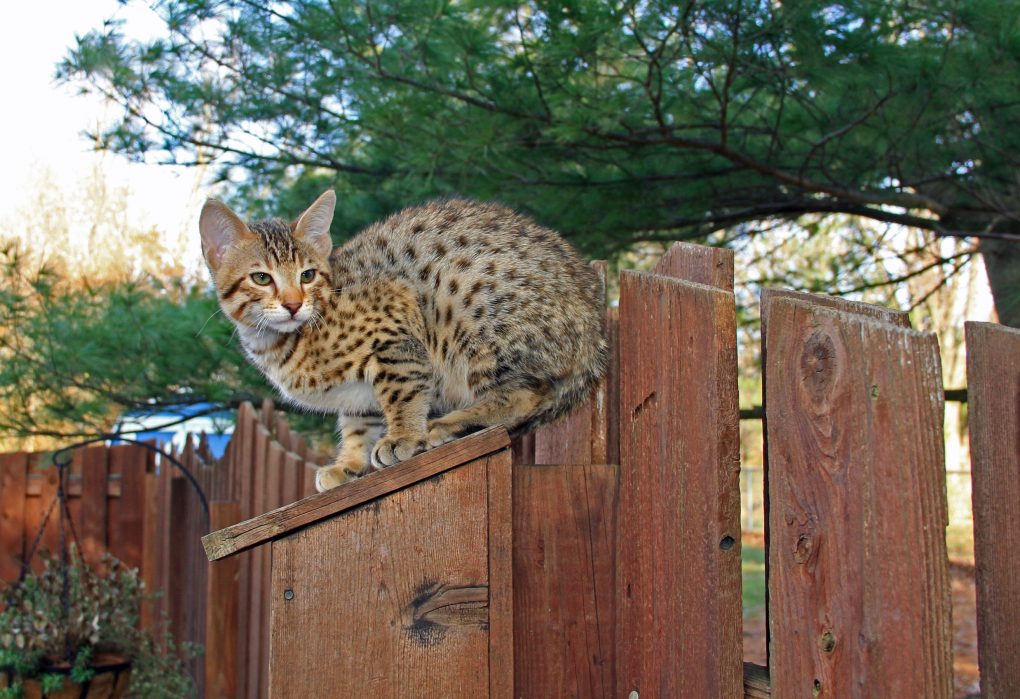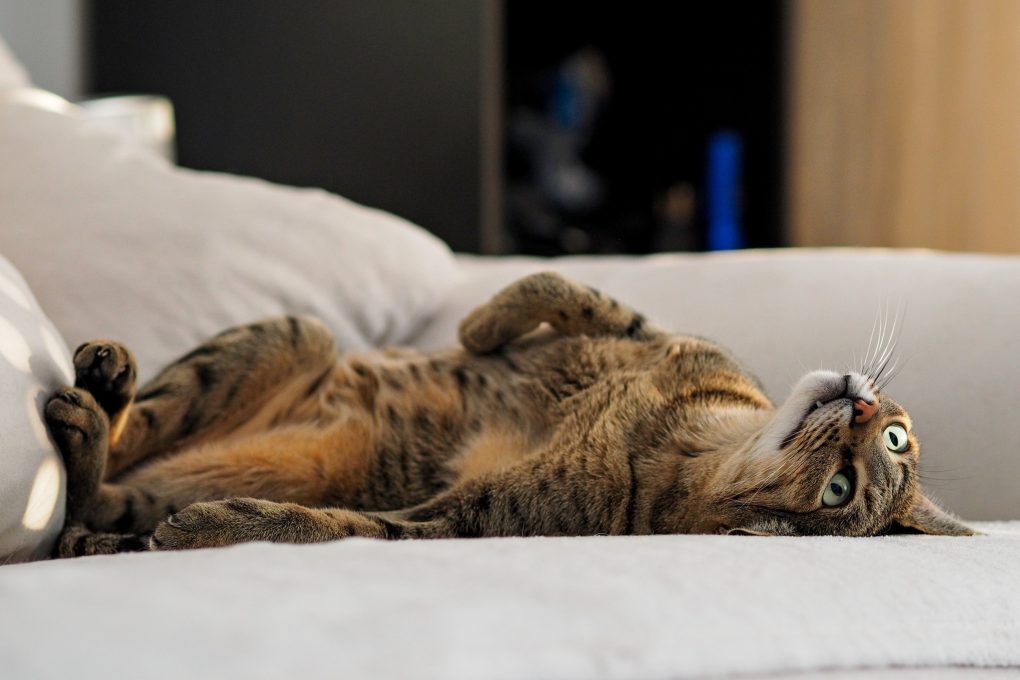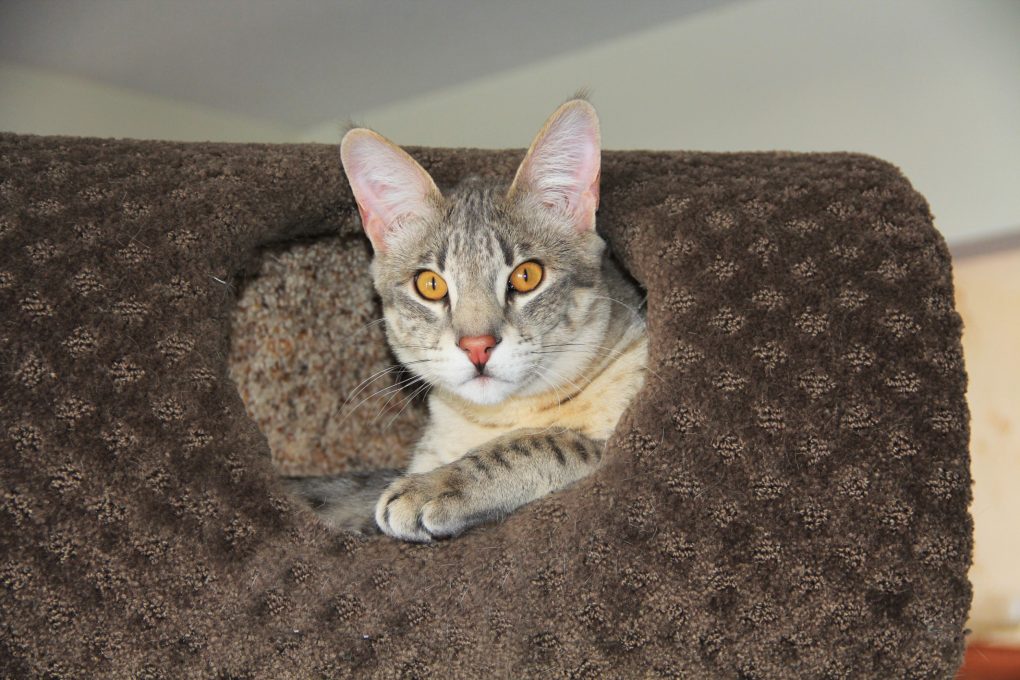How Much Do Savannah Cats Weigh: A Guide to Understanding the Healthy Weight for Savannah Cats
Savannah cats weigh 12 to 25 pounds, depending on gender, age, and generation. Male Savannah cats are typically larger than females, while adults weigh more than kittens; the higher the percentage of serval DNA in the cat, the larger it will be.


The care given to Savannah cats, specifically their diet, also affects their weight. Feeding them a high-quality, balanced diet that meets their nutritional needs can help them maintain a healthy weight.
Table of Contents
Savannah Cat Weight by Age
It’s essential to monitor the weight of Savannah cats across various ages to ensure they are growing and developing correctly. Here are the average weight ranges for Savannah cats by age:
- Kittens (0-6 months): Savannah kittens can weigh anywhere from 0.5 to 4 pounds at birth and may double or even triple their weight within the first few weeks. By six months of age, they can weigh anywhere from 8 to 14.3 pounds, depending on their generation and sex.
- Juveniles (6-12 months): Between six and twelve months of age, they may continue to grow and gain weight, with males typically weighing more than females. At 12 months, a Savannah cat weighs between 9.7 to 21 pounds.
- Adults (1-3 years): Once a Savannah cat reaches adulthood, their weight will stabilize, and it may continue to grow or maintain its weight depending on its diet and exercise routine. The average weight for an adult Savannah cat can range from 12 to 25 pounds, depending on their generation and sex.
It’s important to note that these weight ranges are just averages, and individual Savannah cats may weigh more or less than these ranges depending on their genetics, diet, and lifestyle. In addition, owners should consult with a veterinarian if they have concerns about their cat’s weight or growth.
Savannah Cat Weight by Generation
F1 (First-Generation)
Since servals are wildcats and are much larger than domestic cats, F1 Savannah cats can inherit their size and weight. African servals can weigh up to 40 pounds or more. This larger size can be passed down to F1 Savannah cats, resulting in males weighing around 22.9 pounds and females weighing about 19.4 pounds.
F1 Savannah cats are the first generation offspring of a domestic cat and a serval, and they have a serval parent and a domestic parent. F1 Savannah cats are typically the heaviest and largest Savannah cat generations because they have more serval DNA than any other generation.
F2 (Second-Generation)
F2 Savannah cats are typically smaller and lighter than F1 Savannah cats while male F2 Savannah cats weigh 16.4 pounds, while females weigh approximately 13.3 pounds.


However, it’s important to note that the weight of an F2 Savannah cat can vary based on individual factors such as genetics, diet, exercise, and lifestyle. Proper care and nutrition can influence the weight of F2 Savannah cats. Feeding a balanced and appropriate diet, regular exercise, and ensuring access to fresh water can contribute to a healthy weight.
F3 (Third-Generation) and Beyond
F3 Savannah cats and higher generations are typically smaller and lighter than F1 and F2 Savannah cats. On average, male F3 Savannah cats weigh between 15.5 pounds, while females weigh around 12 pounds.
F3 Savannah cats and higher generations are typically smaller and lighter than F1 and F2 Savannah cats because the percentage of serval DNA in the cat’s genetic makeup decreases with each generation.
F3 Savannah cats have one serval grandparent, while F4s have one serval great-grandparent, and so on. As the percentage of serval DNA decreases, so does the likelihood of inheriting the larger size and weight of the serval.
Health Risks for Overweight Savannah Cats
Being overweight can pose health risks to Savannah cats like any other cat breed. Studies have also shown that overweight cats may have a reduced lifespan compared to cats of a healthy weight. This is because they are at a higher risk of developing diabetes. Excess weight can also strain a cat’s joints, leading to arthritis or other joint problems.
In addition, obesity can increase the risk of heart disease, other cardiovascular problems, and respiratory issues. Specifically, overweight cats may experience breathing difficulties due to excess fat in the chest area. In addition, fatty liver disease can occur in overweight cats, leading to liver failure.
How to Keep a Savannah Cat at a Healthy Weight
As with any cat, feeding your Savannah cat a balanced diet with plenty of fresh water and quality food is essential. Feed your cat high-quality cat food appropriate for their age and activity level. Avoid giving them table scraps or human food as treats. This will ensure your cat gets the essential nutrients to be healthy and happy.


Measure your cat’s food according to the feeding guidelines on the cat food packaging. Avoid free-feeding or leaving food out all day. Be mindful of the number of treats you give your cat, as too many can contribute to weight gain. So regularly weigh your cat and monitor their body condition to ensure they maintain a healthy weight.
Engage your cat in regular playtime and exercise to keep them active and help them burn calories. You can encourage your cat to exercise by providing access to a catwalk or play area indoors. Keep your cat’s environment clean and comfortable by regularly cleaning the litter box and changing the bedding. You can also provide your cat with toys and treats to motivate it.
Vaccinate your cat against common health problems such as rabies and distemper, and monitor your cat for signs of illness or injury. Schedule regular check-ups with your veterinarian to monitor your cat’s weight and overall health. They can also provide recommendations on diet and exercise for your cat.
